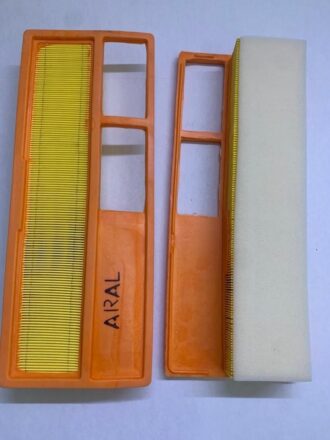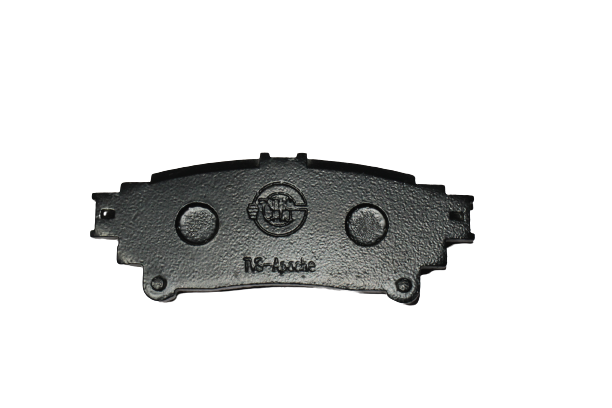How to Pick the Best Engine Air Filter: A Comprehensive Guide
The engine air filter plays a crucial role in your vehicle’s performance by ensuring that clean air enters the engine, free of dust, debris, and contaminants. A high-quality air filter can improve fuel efficiency, increase engine longevity, and enhance overall performance. With so many options available in the market, choosing the right engine air filter for your vehicle can be challenging. In this guide, we’ll walk you through the key factors to consider when picking the best engine air filter for your car.
1. Understand the Role of the Engine Air Filter
The function of the Air Filter:
The primary function of an engine air filter is to prevent dirt, dust, and other contaminants from entering the engine. A clean air filter ensures that the engine receives an adequate supply of clean air, which is essential for efficient combustion. Over time, a dirty or clogged air filter can reduce airflow, leading to decreased engine performance and increased fuel consumption.
Types of Air Filters:
There are several types of engine air filters, including paper, foam, and cotton gauze filters. Each type has its advantages and is suited for different driving conditions. Understanding these differences is the first step in choosing the right filter for your vehicle.
2. Consider Your Driving Environment
Urban vs. Rural Driving:
Your driving environment plays a significant role in determining the type of air filter you need. If you frequently drive in urban areas with heavy traffic and pollution, you may need a filter that offers better protection against fine particles. Conversely, if you drive in rural or off-road conditions, you might need a filter that can handle larger debris and dust.
Seasonal Considerations:
The time of year can also impact your choice of air filter. During the monsoon season, for example, there may be more moisture in the air, requiring a filter that can handle damp conditions without getting clogged or damaged.
3. Know the Different Types of Air Filters
Paper Filters:
Paper air filters are the most common type found in vehicles. They are typically disposable and designed to offer a balance between filtration efficiency and cost. These filters are effective at trapping particles and are ideal for standard driving conditions. However, they need to be replaced regularly to maintain performance.
Foam Filters:
Foam air filters are often used in off-road vehicles and high-performance applications. They are washable and reusable, making them a cost-effective choice over time. Foam filters are excellent at capturing larger particles and are durable in harsh environments, but they may require more frequent maintenance.
Cotton Gauze Filters:
Cotton gauze filters, like those made by K&N, are known for their high flow rates and are popular among performance enthusiasts. These filters are washable, reusable, and can last the lifetime of your vehicle if properly maintained. Cotton gauze filters provide superior airflow, which can improve engine performance, but they are typically more expensive than other types.
4. Check for Compatibility
OEM vs. Aftermarket Filters:
When selecting an air filter, you have the option of choosing an Original Equipment Manufacturer (OEM) filter or an aftermarket filter. OEM filters are designed specifically for your vehicle and ensure a perfect fit and reliable performance. Aftermarket filters, on the other hand, offer a wider range of options, including performance upgrades and reusable designs. Ensure that the filter you choose is compatible with your vehicle’s make, model, and engine specifications.
Fitment and Installation:
It’s essential to choose an air filter that fits correctly in your vehicle’s air intake system. An improperly fitted filter can allow unfiltered air to enter the engine, causing damage. Most filters come with installation instructions, but if you’re unsure, it’s best to consult a mechanic or refer to your vehicle’s manual.
5. Evaluate Filtration Efficiency
Micron Rating:
The efficiency of an air filter is often measured by its micron rating, which indicates the size of particles it can trap. A lower micron rating means the filter can capture smaller particles, offering better protection for the engine. However, filters with extremely low micron ratings may restrict airflow, so it’s essential to find a balance that suits your vehicle’s needs.
Filter Surface Area:
The surface area of the filter media also affects its performance. A larger surface area allows the filter to trap more particles without becoming clogged, ensuring consistent airflow to the engine. High-performance filters often have pleated designs to maximize surface area within the same space.
6. Consider Maintenance Requirements
Replaceable vs. Reusable Filters:
Paper filters are typically disposable and need to be replaced every 10,000 to 15,000 kilometers, depending on your driving conditions. Reusable filters, such as foam or cotton gauze filters, require regular cleaning and re-oiling to maintain their effectiveness. Consider how much time and effort you’re willing to invest in maintenance when choosing your filter.
Cleaning Frequency:
Reusable filters require periodic cleaning to ensure optimal performance. Follow the manufacturer’s recommendations for cleaning intervals, which can vary depending on the filter type and driving conditions. Neglecting filter maintenance can lead to reduced engine performance and increased wear.
7. Assess the Cost-Effectiveness
Initial Cost vs. Long-Term Savings:
While reusable filters tend to have a higher upfront cost, they can be more cost-effective in the long run if maintained properly. Disposable filters are cheaper initially but require more frequent replacements, which can add up over time. Consider your budget and how long you plan to keep your vehicle when evaluating the cost-effectiveness of different filters.
Brand Reputation:
Stick to reputable brands that have a proven track record for quality and performance. Investing in a well-known brand might cost more initially, but it can save you from potential engine issues down the road. Research online reviews and ask for recommendations to ensure you’re buying a filter that meets your expectations.

Conclusion
Choosing the best engine air filter for your vehicle is a crucial decision that can significantly impact your car’s performance and longevity. By understanding your driving environment, knowing the different types of filters available, and considering factors such as compatibility, filtration efficiency, and maintenance requirements, you can make an informed choice that keeps your engine running smoothly.
At BharatAutoSolution, we offer a wide range of high-quality engine air filters to suit every need and budget. Whether you’re looking for OEM replacements or high-performance upgrades, our selection has you covered. Visit our online store or contact our experts for personalized recommendations to keep your vehicle in peak condition.





